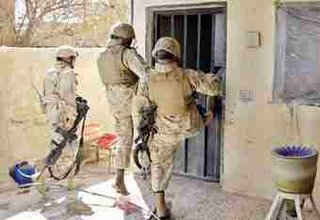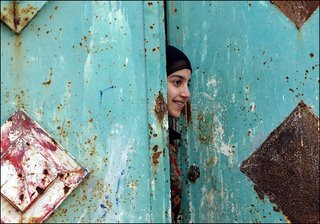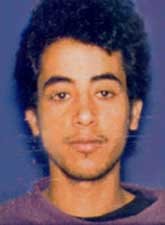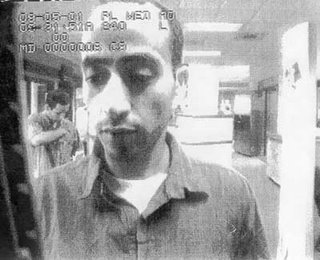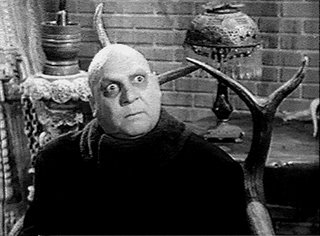I sincerly apologize for anyone who aksed me to stop talking about it, this thread is not intedned to attack anyone, it's something that I believe we should read. Besides, you don't have to believe or agree with all what's written.
This the article from Newskeek, September 28th, 1970. I copied it as it is. It's long so I'll continue typing the second part later.
Hareega
---------------------------
Civil War Explodes in Jordan
T he signal came at the crack of dawm.
Long, dusty columns of Centurion tansk and armored vehicles rumbled through the narrow streets of Jebel Amman and Jebel Wehdeh, spreading out over the seven dun-colored hills that dominate the Jordanian capital. As the mechanized army advanced, its path was cleared a blistering hail of artillery shells that smashed into the entrenched positions of the Palestenian commandos and turned some secions of the sprawling Wahdat refugee camp into an instant charnel house. Jubilantly, Jordanian Army officers radioed back to their head-qaurters predicting victory within a matter of hours. But then, the government's lighting thrust ground to a halt and the guerillas, hold up behind the thick stone walls of a hundred bulidings throughout Amman, launched a counter-attack. For hour after hour, then day after day, the two sides remained locked in battle. And in a dozen other cities and towns across the barren HAshemite Kingdom Of Jordan, bloody civil war also raged.
With the geographical heart in the Arab World in flames, Egyptian President Gamal Abdel Nasser moved desparately to end the fighting. Dispatching a special envoy to meet with both sides in the crisis, Nasser passed all week for an attempt of cease-fire. But in the end, the results of he Egyptian mission to Amman cast an even darker shadow over the future of Jordan. Yassir Arafat, head of the Palestenian Liberation Organziation (PLO) umbrella group, was no-where to be found, presumably having slipped underground to direct his forces in battle. Even more ominous were indications that Jordan's King Hussein was no longer master of his own regime. For just moments after Cairo had announced that the King was ready to seek a truce, Jordanian military leaders issued what they termed a "final ultimatum" to guerrillas to surrender or be extreminated.
Blackout: It was impossible to tell whether the army could back up that threat. All week long, as the conflict continued, the world had to strain for bits and pieces of news. Unlike most contemporary wars, the conflict in Jordan was not played out before television cameras and relayed instantly around the world. Even newspapers could not convey the unfolding drama in all its apocalyptic detail. For nearly all the 140 foreign correspondants on-scene in Amman were bottled up in the shell-pocked Intercontinental Hotel, caught up in a deadly cross-fire between government tanks the commandos' Russian-made Katyusha rockets. Phone and telegraph lines were cut, electricity failed and capitals' airport was closed down. For days, the only reliable reports on the fighting crackled up over a radio linkup between the embattled American Embassy and the State Department in Washington. But by late in the week, fuel for the embassy's transitter was running low, and even that conatct with the outside world was threatened. That left the wild claims and the counterclaims broadcast by Radio Amman and three commando stations as the only source of information on what was happening. "Commando morale high," said one guerrilla announcement, monitored in Beirut. "Explosions are taking place at army ammunition dumps which are now on fire."
But if reliable accounts of the fighting were unavaialble, there was no uncertainty about the meaning of events in Jordan: the desert kingdom had been transformed into a cockpit for a decisive test of will between two different groups of Arabs. On one side stood King Hussein and his loyal, ruthless Bedouin army. Led by its Sandhusrt-trained officers, the King's 58,000-man army was considered one of the best in the Arab world. On the other side were the Palestenians, challenged for the first time since they had emerged as a major force in the wake of the 1967 six-day war. Driven by hatred nutured the two decades of their diaspora, the Palestenians (who now make more than half of Jordan's population) were spear-headed by a lightly army, irregular force of some 20,000 commandos who, until last week, had displayed little talent for sustained battle. And on the outcome of the struggle hung not only the question of who would rule Jordan, but the shape of entire Middle East.
That the commandos had been cast in such a decisive role was hardly surprising . In the three years since the crushing defeat of the conventional Arab armies at the hands of ISrael, the Palestenian Liberation Movement has been at the heart of the Mideats's torment and turmoil. Spouting a muddled ideology of Marxism-cum-Arab nationalism, the guerrillas have become the chief symbol in the mythology of Arab revival. For this more than any other reason, Hussein had repeatedly compromised with the commandos (who number along their symapthizers many Palestenian soldiers in the Jordanian Army). Each time he gave way, however, he did so at the cost of his authority. And finally, the King was forced to move.
Hijack : The spark that touched off the Jordanian conflagration was, curiously enough, the daring multiple hijack of three planes and their passengers by the military Marxists of the Popular Front of the Liberation of Palestine (PFLP). From the moment the jets set down two weeks ago at the "Revolustion Airstrip," the die was cast. While the Jordanian Army looked on helplessly, the Palestenians defied all authority as they bartered with the world for their hostages. "During the hijack it was as if the Jordanian Government no longer existed," said one western dilomat in Amman. "Even the Red Cross negotiators found out that they had to deal directly with the PFLP and not the government. The King's authority was threatened."
Despite the humiliation by the commandos, however, Hussein was reluctant to plunge his nation into full-scale war. Even after the skujackings, Jordanian Army units were refused permission to attack guerrilaa-held population centers such as Irbid, where the Palestenians had set up governing soviets, or "people's committees," to administer "liberated areas". But by now the pressure for decisive actions were growing irresistible. In the south, loyalist Bedouin tribesmen met in Ma'an under Sheikh Faysal, the leader of th dominant Al Husseini tribe, and began to plan a march to Amman to restore the King's authority in his own capital. Most importantly, the army was grwoing increasingly restive in the face of the incessant badgering by the commandos. Soem troops, in fact, were openly mutinous. When Huseein visited one his armored units in Zarqa, 13 miles north of the capital, one officer flew a brassier from his tanks' radio antenna. When the King asked why he had done it, the officer snarled: "Because we are women."
In one form or another, that view was clearly shared by much of the military hierarchy. As sporadic gunfights flared throughout Amman, generals mets with Hussein the Basman Palace, alternately cursing the young monarch and pleading him to allow an all-out-attack on the guerrillas. After a series of these emotional meetings, an obviously depressed Hussein told guests at a palace dinner party: "I cannot hold my army much longer. Every day the situation grows worse."
-----------------------------------
I really have to take off now, I'll come back tomorrow to write the rest and try to scan some images.

